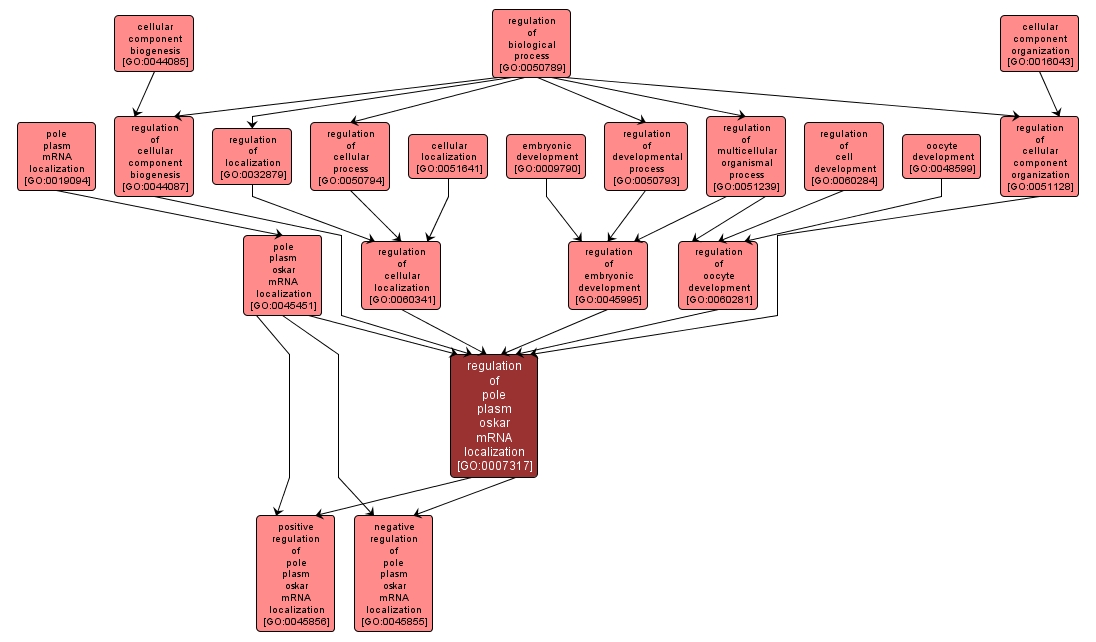GO TERM SUMMARY
|
| Name: |
regulation of pole plasm oskar mRNA localization |
| Acc: |
GO:0007317 |
| Aspect: |
Biological Process |
| Desc: |
Any process that modulates the frequency, rate or extent of the process by which oskar mRNA is transported to, or maintained in, the oocyte pole plasm. |
Synonyms:
- regulation of oocyte pole plasm oskar mRNA localization
|
|

|
INTERACTIVE GO GRAPH
|














